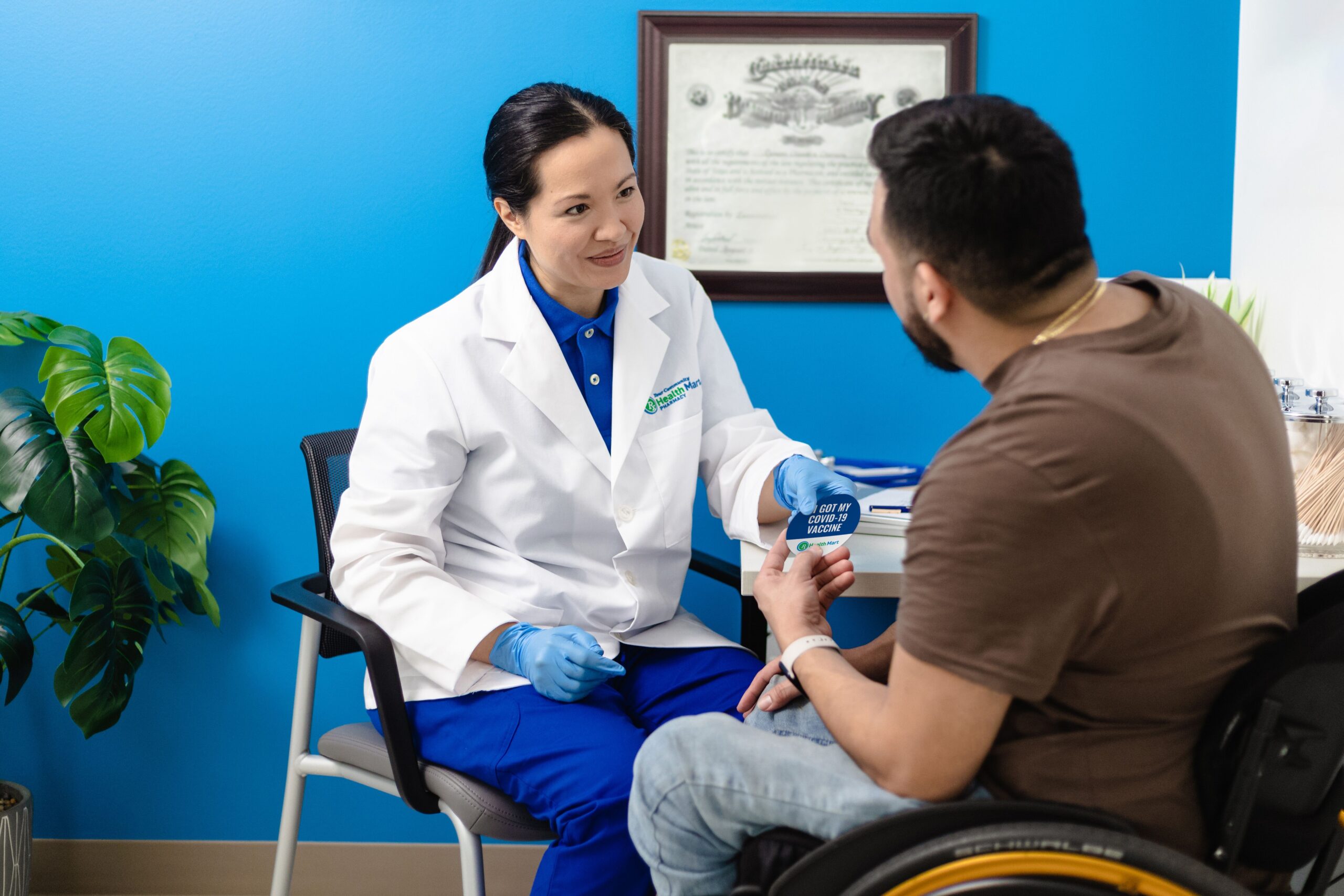
- Health systems and home infusion therapy
Health systems and home infusion therapy
10 min read
Why health systems should embrace home infusion
Keeping patients healthy and in their homes is a benefit and core component of patient-centric care. One area of significant expansion for health systems is the infusion therapy market. The home infusion therapy market is projected to grow from $11 billion in 2022 to more than $29 billion in 2032.1 “The rapid growth we are seeing in the home infusion therapy market is a significant opportunity for health systems to enhance patient care while managing their costs effectively,” said Katie Werner, Vice President of Infusion Therapy at McKesson Medical-Surgical, “and shifting infusion services into the home not only enhances patient comfort and adherence, but it also aligns with the growing need to lower expenses associated with hospital-based care.”
Health systems are challenged to care for an aging population with more cases of chronic diseases requiring intravenous (IV) medications and delivering infusion services is a win-win for health systems. It enables them to address the financial pressures to shift more care out of the costly hospital setting and into the home. Compared to a traditional infusion hospital setting, home infusion therapy imparts significant cost savings. The average cost of infusion is $200 to $1000 per treatment for patients.2

Infusion therapy provides the ability to support patient populations throughout the entire continuum of care and offers a way to keep patients in-network. It also benefits patients by allowing them to receive high quality care in the comfort of their homes and, equally as important, individualized assistance to help support infusion therapy compliance for better outcomes.
For health systems looking to expand into the infusion therapy market, consider the following factors that can support improved care quality, patient satisfaction and operational efficiency, while helping to reduce costs.
“By embracing home infusion therapy, health systems can provide high-quality, patient-centric care that supports better health outcomes and fosters strong patient satisfaction,” said Werner.
Device management
Device management of infusion devices, enteral pumps, and ventilators is a tremendous challenge for health systems, which gets even more complex when delivering home infusion services. The health system coordinates the delivery of the home infusion devices and products, helps to set up the equipment and monitors the equipment so it stays in working order. It becomes harder to track, manage and maintain the equipment. OneTrack®, from McKesson Biomedical SolutionsTM, streamlines device management and allows you to track, manage, and maintain equipment documentation, all in one place.
The cost to manage and support the devices in the home setting can be high, requiring health systems to provide services that fall outside of their care models. Teaming up with an external provider offering a full range of solutions for inventory management, medical device service, device compliance and technology for inventory management can help improve operating expenses and reduce cost for the health system.
“The success of infusion programs relies heavily on efficient device management. Utilizing tools such as OneTrack® can simplify this process and enhance operational efficiency,” Werner explained.
Equipment is one part of the equation when it comes to administering home infusion. Another critical component is providing and managing the medication or other therapies delivered intravenously to the patient. Many health systems are opting to discharge patients with the products they need to quickly get them on the therapeutic regimen that is prescribed to them and then leverage their nurses and courier network or a distribution network to coordinate the resupply. Medication adherence is key to better patient outcomes.
Patient engagement
When caring for patients outside of a traditional healthcare setting, it is important to facilitate ongoing communication. With the trend toward consumer-driven healthcare, patients expect to be able to connect with clinicians through their smart phones and other mobile devices. Having two-way communication is key to an effective home infusion therapy program.
VerbalCare® is a mobile app for secure messaging between patients and clinicians streamlines communication, enables patients to quickly get answers to their questions. This allows the health system to send information to help support compliance, such as messages related to resupply and regimen adherence. Advanced solutions offer the ability for clinicians to send educational materials, including device how-to tutorials, in real-time, as well as easily share forms and conduct patient satisfaction surveys.
Giving quality care at home to support better outcomes
Providing quality care at home is crucial for improving outcomes. Health systems that use this approach fosters IV therapy compliance, leading to improved outcomes, reduced complications and lowered expenses. Opting for home-based medication regimens promotes patient health, benefits the health system and aligns with payer interests.
“By embracing home infusion therapy, health systems can provide high-quality, patient-centric care that supports better health outcomes and fosters strong patient satisfaction,” said Werner.
Our expert consultants and sales teams have the experience and expertise in home infusion therapy to allow you to provide high-quality care in the comfort of your patients’ homes. By partnering with us, you can expand your offerings and meet the needs of your patients while helping to revenue opportunities for your health system.
